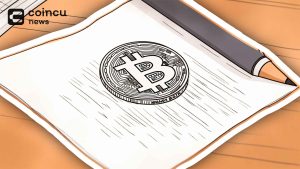Huobi, KuCoin, And Binance Still Helping Russian Users Avoid Sanctions
Key Points:
- Major exchanges like Huobi, KuCoin, and Binance are still using ways for Russian users to still trade cryptocurrencies.
- Another alarming finding regarding the 62 crypto exchanges that the Inca Digital report examined is that some of them failed to perform KYC checks on Russians.
- The world’s largest cryptocurrency exchange, Binance, is said to offer several ways for Russians to convert their local face into crypto.
According to a report by digital asset data analytics firm Inca Digital, Huobi and KuCoin continue to allow users of sanctioned Russian banks to conduct transactions on their platforms.
According to Inca Digital CEO Adam Zarazinski, this could be in violation of US and European sanctions, who also noted that many transactions include Tether, a stablecoin that has come under regulatory scrutiny.
“Tether is frequently used by Russians to move money out of the country. It is absolutely used by these two exchanges in particular to provide crypto banking services to sanctioned Russian banks.”
Given that it has been a year since Russia invaded Ukraine, Zarazinski stated that the Government intends to publish the report soon. Another alarming finding regarding the 62 crypto exchanges that the study examined was that some of them did not perform KYC checks on Russians.
Research has found that two exchanges allow users to purchase cryptocurrencies with debit cards issued by sanctioned Russian banks, including Sberbank.
The CEO of KuCoin, Johnny Lyu, stated through a spokesperson:
“KuCoin does not support the withdrawal and deposit of the cards issued by Russian banks. As an exchange registered in Seychelles, we abide by the laws and regulations of Seychelles. We also respect the laws and regulations of other countries. If there are suspicious transactions that needed to be investigated, we will voluntarily cooperate.”
Representatives for KuCoin and Binance, an exchange heavily cited in the article, denied the allegations.
The world’s largest cryptocurrency exchange, Binance, is said to offer several ways for Russians to convert local cash into crypto, including through over-the-counter desks and peer-to-peer markets. According to research, Russians without checks know your customers can choose any of these alternatives for up to $10,000.
According to Chagri Poyraz, the company’s global director of sanctions, the first major exchange for imposing EU crypto-related sanctions was Binance. The exchange is also “a full KYC platform.”
Investigations into Binance, which claims to have no centralized headquarters, have taken place in multiple countries. The Securities and Exchange Commission, the Commodity Futures Trading Commission, the Department of Justice, and the Internal Revenue Service have all reviewed Binance in the United States.
DISCLAIMER: The Information on this website is provided as general market commentary and does not constitute investment advice. We encourage you to do your research before investing.
Join us to keep track of news: https://linktr.ee/coincu
Harold
Coincu News





















